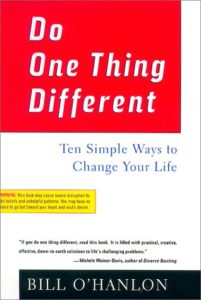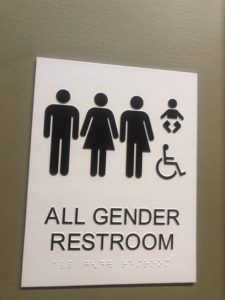The Good, the Bad, the Uncertain Making Sense of Recent News Stories
GOOD: Federal Judge Issues Injunction Against Biden’s Race-Based Loan Forgiveness Program
US District Judge S. Thomas Anderson issued an injunction against the US Department of Agriculture (USDA), halting the distribution of federal loan-forgiveness funds under the Biden-sponsored American Rescue Plan Act (ARPA). The ruling was in favor of Robert Holman, a Tennessee farmer who argued that the “whites-only” provision of the program is unconstitutional.
The injunction will be in place until the case is fully resolved. However, the judge noted that Holman “has shown a substantial likelihood that he will prevail on his claim.”
Is the American Rescue Plan racist? Click here.
BAD: Crime Surges in San Francisco After Passage of a New Law
I’ve been writing about the violence in Chicago, but Chicago is not alone. San Francisco is having a different kind of crime wave. Ever since they passed Proposition 47, amazingly called “The Safe Neighborhoods and Schools Act,” theft has been on the rise. Organized gangs have taken advantage of it by hiring kids to ransack stores, knowing that so long as each hired thief keeps his score to less than $950, the worst that will happen to him – if he’s caught – is a ticket and a misdemeanor.
There have been dozens of videos of this, but the one that went viral was of about a dozen men rushing out of Nieman Marcus with tens of thousands of dollars’ worth of designer handbags, before jumping into three getaway cars: an Infiniti, a Mercedes, and a Lexus..
Click here to see the video.
And click here for a clip of locals reacting.
UNCERTAIN: European Union’s COVID-19 Vaccine Passport Goes Live
The European Union is taking the lead in creating vaccination certificates, an idea that horrifies proponents of medical privacy and individual liberty, but pleases proponents of Big Government.
“In March, we promised… free and safe travel within the EU by the summer,” said European Commission President Ursula von der Leyen. “We can now confirm… the system is up and running!”
One hopeful note: “Member States must refrain from imposing additional travel restrictions on holders… unless they are necessary and proportionate to safeguard public health.”
How does the EU’s Vaccine Passport work? Click here.
GOOD: FTC to Investigate Non-Compete Contracts
As part of a broad executive order, President Biden called on the FTC to “ban or limit” non-compete clauses in employment contracts. IMHO, that’s generally a good thing, because it gives employees more freedom to change jobs. About 32% of US companies use such clauses in their employment contracts, according to PayScale Inc. Currently, these sorts of employment issues are handled at the state level, but getting the FTC involved would bring jurisdiction to a federal level, which is, of course, what the government wants.
BAD: FTC to Investigate Non-Compete Contracts
The problem with banning non-compete clauses is that it would create a serious risk for companies – that their employees would feel free to share trade secrets and other proprietary information with their new employers. And that could set in motion a policy of poaching key employees from one’s competitors simply for that purpose.
UNCERTAIN: FTC to Investigate Non-Compete Contracts
As an employer, I’ve never required non-compete clauses in employment contracts. Nor do I worry too much about them. If they are very restrictive, they are legally unenforceable (or so I’ve been told). And when it comes to trade secrets, most of them aren’t secrets at all. Just imagined secrets that everyone else is already doing.
On the other hand, if I were in a business whose success depended on developing new technology, I would worry about having that “stolen.”
I have to believe there is a rule that falls in the midground that protects true trade secrets – but only true trade secrets. And even then only within reasonable boundaries.
GOOD: Zaila Avant-garde Becomes the 1st African-American National Spelling Bee Champ
Eighth-grader Zaila Avant-garde won the 2021 Scripps National Spelling Bee – the first African-American to do so in the competition’s history.
One year after the coronavirus pandemic forced the cancellation of the annual tournament and two years after eight contestants were named co-champions, the Louisiana native correctly spelled the word “murraya” – a type of tree – to claim this year’s title and the $50,000 prize.
(And spelling isn’t her only skill. She’s pretty good at basketball, too.)
Click here.
BAD: Biden’s Not Worried About Inflation
Joe Biden’s handlers brought him out on in public recently (at a so-called town hall meeting) where he was pitched softballs by CNN’s Don Lemon.
One particularly spongy one was on the subject of inflation – whether Biden felt that it was an emerging problem.
“First of all, our experts” predicted it,” he said.
This is not true. The White House budget office forecast inflation of 2.1% and the Fed had it at 2.2% for 2021. But in June, the number was 5.4% – and that number is artificially low.
Then Biden said that inflation is “just a temporary phenomenon.”
This may be true. There are good arguments on both sides.
Finally, he promised to “keep inflation in check” through his $4 trillion spending plan.
That is just plain crazy. You don’t limit inflation by borrowing money you don’t have paid for by counterfeit dollars. That is, by definition, inflationary.
DISAPPOINTING: Highway Dollars Won’t Rev Up the Economy
Infrastructure spending can create economic expansion. The government-sponsored interstate highway system of the 1950s-1970s, for example, greatly reduced the time it took to travel cross-country. As a result, businesses gained access to new suppliers and new customers. Cities were able to specialize in certain industries. And international trade opened.
But some economists are saying that the White House’s $116 billion plan won’t have the same effect. Maintaining old infrastructure or adding new roads here and there, though necessary, tends to boost GDP only in developing countries like India and China, not in industrialized ones.
Click here.



